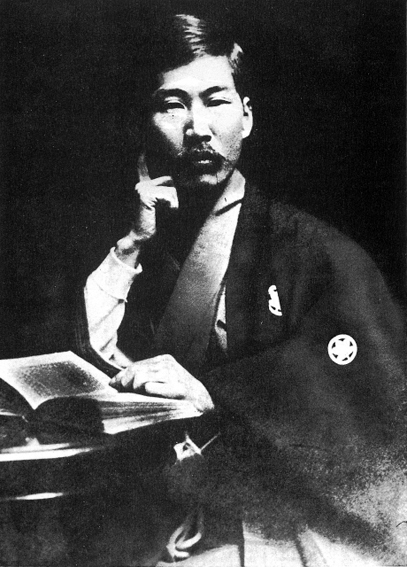Kōtoku Shūsui
| Shūsui Kōtoku | |
|---|---|

Shūsui Kōtoku
|
|
| Born |
November 5, 1871 Nakamura, Kōchi, Japan |
| Died | January 24, 1911 (aged 39) Tokyo, Japan |
| Occupation | Journalist, Anarchist Political agitator |
Denjirō Kōtoku (幸徳 傳次郎 Kōtoku Denjirō, November 5, 1871 – January 24, 1911), better known by the nom de plume Shūsui Kōtoku (幸徳 秋水 Kōtoku Shūsui), was a Japanese socialist and anarchist who played a leading role in introducing anarchism to Japan in the early 20th century, particularly by translating the works of contemporary European and Russian anarchists, such as Peter Kropotkin, into Japanese. He was a radical journalist, and he was executed for treason by the Japanese government.
He also contributed articles to Sekai fujin (Women of the World), a socialist women's paper.
Kōtoku moved from his birthplace, the town of Nakamura in Kōchi Prefecture, to Tokyo in his mid-teens and after graduating from the Tokyo School of English, became a journalist there in 1893. He joined Katayama Sen in the “Society of the Study of Socialism”. From 1898 onwards he was a columnist for the Yorozu Chōhō (Everything Morning News), one of the more radical daily papers of the time; however, he resigned that position when the paper switched to a pro-war stance in October 1903 in the buildup to the Russo-Japanese War.
The following month he co-founded the Heimin Shimbun (Common Peoples' Newspaper) with another Yorozu Chōhō journalist, Toshihiko Sakai. This paper's outspoken anti-war stance and disregard of the state's press laws landed its editors in trouble with the government on numerous occasions, and Kōtoku himself served a five-month jail sentence from February to July 1905.
...
Wikipedia
